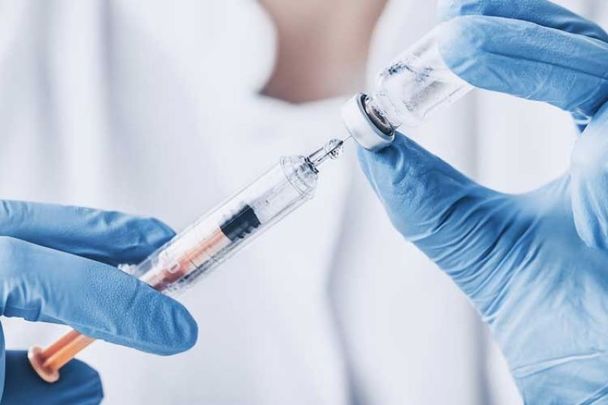An Irish scientist from County Kildare co-designed the new Oxford AstraZeneca COVID-19 vaccine, which has shown to be highly effective in late-stage trials.
On Monday, interim results of the vaccine were publicly announced by the University of Oxford and biopharmaceutical company AstraZeneca, indicating the vaccine is effective at preventing COVID=-19 and offers a high level of protection.
Prof. Tess (Teresa) Lambe, who has worked 10 months on the vaccine with her colleagues at the University of Oxford, told The Irish Times that she could not wait to hear the analysis of the Phase 3 clinical trial results.
“When I was being brought through the results, I stopped the person who was talking and I asked: ‘Do we have efficacy?’ I couldn’t wait to get the answer,” said Lambe, an associate professor and investigator at the Jenner Institute of the University of Oxford.
“I was told ‘Yes, we do’ and I practically broke down, it was great. I was delighted, absolutely delighted.”
The interim analysis of trials in the UK and Brazil showed no hospitalizations or severe cases of the disease in participants receiving the vaccine.
Two different dose regimes were studied during the trials. A dosing regimen of two full doses given at least a month apart resulted in 62 percent efficacy. Another dosing regimen, where a half dose was given to start, followed by a full dose a month later, resulted in 90 percent efficacy. The vaccine has an average efficacy of 70 percent.
Full results of the trials will appear in a scientific paper in the coming weeks.
??? We're so proud of @ucdscience alumna Prof Tess Lambe for her tireless work in successfully developing a coronavirus vaccine at her lab in the @JennerInstitute
The @UniofOxford/AstraZeneca team, led by Prof Lambe, have worked non-stop since January 10 https://t.co/YqvGomjMIc
— University College Dublin (@ucddublin) November 24, 2020
Louise Richardson, vice-chancellor at the University of Oxford, who is also from Ireland, said at a briefing: “This is a great day for the University of Oxford and for universities everywhere. Pushing at the frontiers of knowledge with partners across the globe and putting our extraordinary brainpower in service to society is what we do best.”
AstraZeneca is the third major drug company to release late-stage results for a potential COVID-19 vaccine. Moderna announced earlier this month that its vaccine was 94.5 percent effective against the virus, while Pfizer/BioNTech reported that its vaccine was 95 percent effective, AP News reports.
However, AstraZeneca’s vaccine has an advantage in that its will only need refrigeration and not freezers for storage, making distribution and logistics easier. AstraZeneca's vaccine is also cheaper.
Lambe and her colleagues at the Jenner Institute, which is headed by Dublin-born vaccinologist Adrian Hill, co-developed the new vaccine based on the structure of the emerging coronavirus at the start of 2020. She worked on bringing the vaccine through early trials with collaborators and on delivering some of the results for the large clinical trials.
Lambe, who studied pharmacology and molecular genetics at the University College Dublin, said the new vaccine builds on years of research.
“We have had this platform technology for many many years, and by the time the SARS-CoV-2 outbreak started we had already used it as a platform technology for other outbreak pathogens, so we knew what to do and how to do it,” she said.
“Honestly this has been such a team effort, I have had my team in there over weekends, and it is not just us, not just in Oxford, it is all our trial sites and the volunteers. Without them this would not have happened.”
Lambe, who has previously done research on Ebola, flu and MERS vaccines, added: “We are committed with AstraZeneca and partners to make three billion doses by the end of next year, to make a real impact around the world, for it to be available at cost during the pandemic with no profit and to make it available to low-to-middle income countries.”
When asked if the vaccine would be ready before the end of the year, she told the Today with Claire Byrne Show on RTÉ radio that it was up to the government and regulatory bodies to decide.
“I’ve had my head down trying to make a vaccine for the last year or so. Those types of policy decisions are not up to me, unfortunately.”
She added: “I’ve never worked as hard, or been as driven. I’m definitely looking forward to the end of the day, when I can have a glass of wine.”




Comments